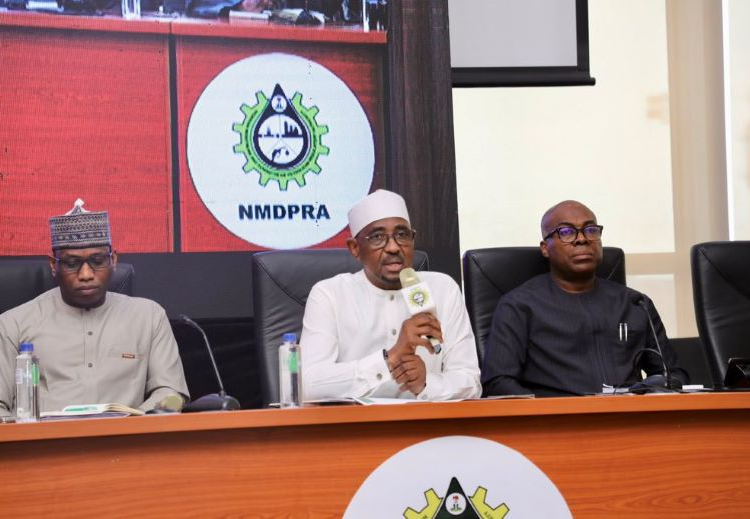As the Nigerian National Petroleum Company (NNPC) Limited begins to scale down its position as sole importer of premium motor spirit (PMS) importation in the country, oil marketers would soon begin to import petrol to close the supply gap.
In line with this, the Nigeria Midstream and Downstream Petroleum Regulatory Authority (NMDPRA) yesterday engaged with oil marketers on the requirements for fuel importation, and to iron out other issues relating to the removal of petrol subsidy.
The NMDPRA chief executive, Farouk Ahmed who briefed journalists shortly after a meeting with oil marketers said the authority is fast-tracking the process of issuing licences to oil marketers to enable them import petrol in the country.
According to him, two or three oil marketers have already booked cargoes of petroleum products to come into the country from July this year.
The meeting is coming exactly two weeks after the announcement by President Bola Tinubu during his inauguration that fuel subsidy had been removed.
Tinubu during his inauguration on May 29 had announced that the federal government will no longer pay subsidy on PMS.
Speaking on the outcome of the meeting, Ahmed said the issue of pricing of petrol was discussed with the oil marketers and it was agreed that there will not be capping of prices to allow the forces of demand and supply to determine prices.
“On pricing, we also discussed and we all agreed that as much as the market is deregulated and there’s no price capping by NMDPRA, we also believe that we’ll take responsibility by ensuring that the prices would be reflective of the market.
“We understand that prices will not be the same all across the country because of local transportation, logistics. For example, the price in Lagos being the main receiving location for imports will not be the same with the prices in Ibadan or Sokoto or Maiduguri because the local transportation costs will be added to the price. It is similar to what we had in the past where we had the bridging or equalisation fund. Also, we had the matrix which actually spelt out the cost of moving a truck from one location to another and it was built into the price. So there is no equalisation or bridging fund, but it’s a reflection of the accurate cost,” he said.
He also said that foreign exchange will not be subsidised since the market is deregulated.
“The (foreign exchange) market is deregulated. I don’t believe that we should subsidise FX. The prices of petrol which the NNPC rolled out took cognizance of the exchange rate not being at the NNPC rate. They used an exchange rate of around N650 per dollar. So if the Naira improves, then the price will change. So it can go either way,” Ahmed said.
He said any marketer that would be allowed to import petroleum products must be able to meet the requirements of the Petroleum Industry Act 2021.
The NMDPRA boss stated further that while the NNPC Ltd is being allowed to import petroleum products currently, it will be reducing the level of its importation to not more than 30 per cent to 40 per cent of the market.
This, according to him, is in line with the Federal Competition and Consumer Protection Council Act that no single entity would control more than 30 per cent of the entire market.
According to Farouk, the need for standardisation of products has become imperative in order to avoid situations where consumers will be shortchanged when products that are of lower quality are imported into the country.
He also said during the meeting, the oil marketers agreed to improve their level of collaboration with security agencies to ensure the smooth movement of petroleum products.





